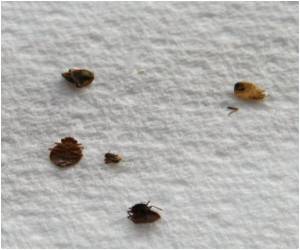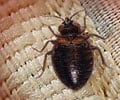Yet another reason to shun bed bugs is they trigger off allergic reactions, asthma attacks and anaphylaxis, according to a research study.

Most individuals bitten by bed bugs get red bite marks that are mildly itchy. But those who are allergic can experience intense itching, swelling, redness, hives and blisters. The bugs can trigger asthma if a large group of them become airborne. And, although rare, those who are highly allergic to the bites may experience anaphylaxis, a life-threatening reaction that can cause trouble breathing, hives or swelling or tightness of the throat.
"The source of the reaction often goes undetected because symptoms can be written off as flea or horse fly bites," said allergist Richard deShazo, MD, of the ACAAI Insect Hypersensitivity Committee. "If you have allergies or asthma and you don''t know the cause of your skin irritation, see your allergist."
Those allergic to bed bug bites notice their bites become
increasingly itchy. Scratching them can lead to infection. Allergists treat the bites with antihistamines and corticosteroid creams. Allergists are specially trained to treat asthma and can help patients who are having asthma flare ups due to bed bugs.
Allergists attending the ACAAI meeting will attend a workshop to better familiarize themselves with the growing epidemic of bed bugs, best diagnostic approaches, and approaches to insect extermination. Allergists receive training in reactions to insects, including wasps, yellow jackets, hornets, fire ants, stinging flies, bed bugs, and others as a part of their clinical training and are an excellent resource for patients who think they may have insect reactions.
Advertisement









